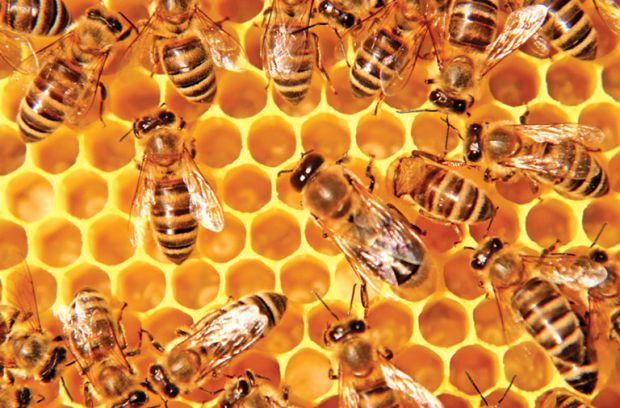-
Tips for becoming a good boxer - November 6, 2020
-
7 expert tips for making your hens night a memorable one - November 6, 2020
-
5 reasons to host your Christmas party on a cruise boat - November 6, 2020
-
What to do when you’re charged with a crime - November 6, 2020
-
Should you get one or multiple dogs? Here’s all you need to know - November 3, 2020
-
A Guide: How to Build Your Very Own Magic Mirror - February 14, 2019
-
Our Top Inspirational Baseball Stars - November 24, 2018
-
Five Tech Tools That Will Help You Turn Your Blog into a Business - November 24, 2018
-
How to Indulge on Vacation without Expanding Your Waist - November 9, 2018
-
5 Strategies for Businesses to Appeal to Today’s Increasingly Mobile-Crazed Customers - November 9, 2018
Bees naturally vaccinate their babies
New research suggests that Queen Bees gives real injections for its little ones during their ealier beginning.
Advertisement
Researchers are still studying if there are bees that oppose the vaccination, but they noted that the protection does not guarantee they are shielded against all diseases.
Now that they know how immunity response is transmitted, it opens the door to figuring out how to augment the process for bees.
He went on to add that the awesome discovery that the team stumbled upon was made possible due to “15 years of basic research on vitellogenin”.
Here is the way it works. Therefore the worker bees have to bring to her a “royal jelly” of pollen and nectar that is often mixed with pathogens from the inside that she consumes and breaks down in her gut. After the queen eats the royal jelly, the microorganisms are stored within her fat body, an organ much like a liver.
When a bee is born, they are already “vaccinated” against some diseases found in their environment.
Since all egg-laying species have vitellogenin in their bodies, the vaccination technique might be applied to fish, birds, reptiles and amphibians, in addition to insects like bees.
The researchers of the study from Arizona State University, the University of Helsinki, the University of Jyväskylä and the Norwegian University of Life Sciences, recently published their findings in the journal PLOS Pathogens, states Nature World News. The bacteria is attached to the vitellogenin protein and passed through the blood. “Now nearly 10 years later, I feel like I’ve solved an important part of the puzzle”, study co-author Dalial Freitak, a postdoctoral researcher with University of Helsinki, said in the release. A pathogen in small amount is introduced to a body so that the immune system can fight the disease. “They would then be able to stave off disease”. Now, it is well documented that they are naturally vaccinated by the protein vitellogenin.
But now that Amdam and Freitak understand how bees vaccinate their babies, this opens the door to creating the first edible and natural vaccine for insects.
Recent reports have illustrated that the global population of bees has dropped significantly from 6 million exemplars in 1947 to 2.5 million in 2015. It could help scientists develop methods of treating commercial beehives and help bees recover from colony collapse disorder.
These days, however, bees face less predictable challenges from human activities, such as pesticide use and sudden widespread transfer of plants/crops and bee pests, as well as climate change factors and other threats.
Advertisement
Saving bees offers significant rewards for humans, since honeybees and other pollinators are vital to food production, pollinating 87 of the top 115 food crops.




























